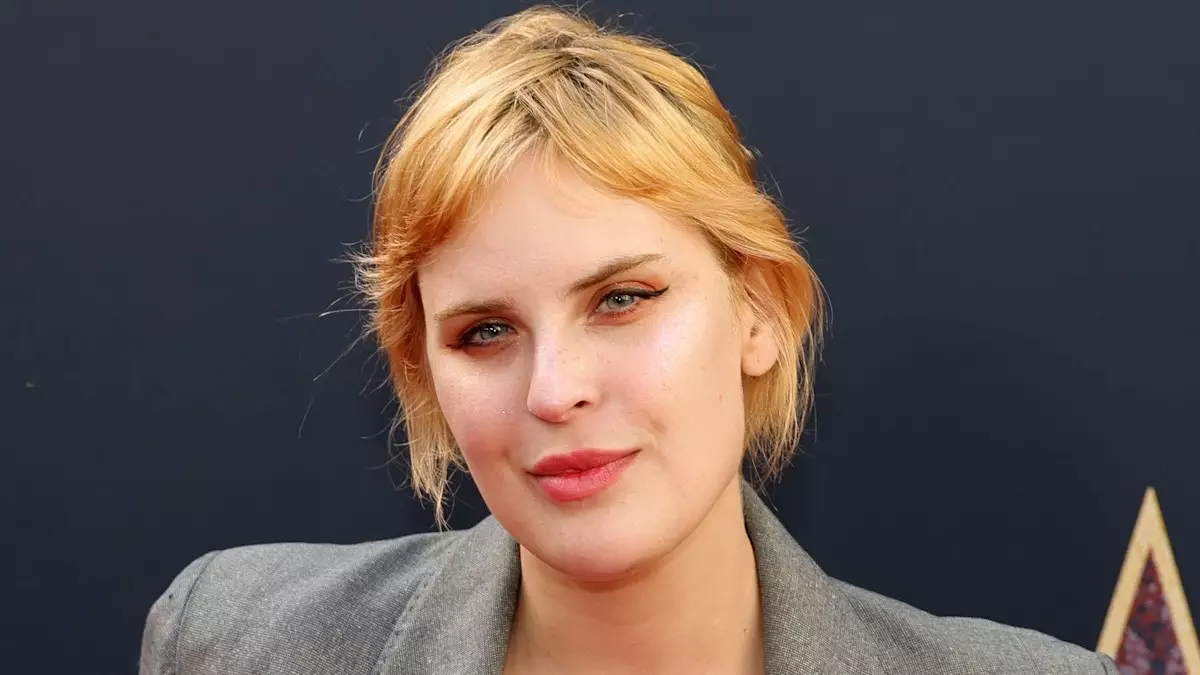In a heartfelt revelation, Tallulah Willis, the youngest daughter of Hollywood icons Bruce Willis and Demi Moore, has opened up about a significant chapter in her life: her autism diagnosis. At 30, the designer reflects on her experience with a mix of vulnerability and gratitude, particularly toward her family. Tallulah has praised her sisters, Rumer and Scout, highlighting their unwavering support throughout her journey. Their encouragement to express her needs in overwhelming situations has shifted her outlook on communication and self-advocacy. “It was a liberating moment,” she shares, emphasizing how their reassurance allowed her to move past her fears of being labeled or perceived as difficult.
Tallulah’s story resonates with many who struggle silently with their mental health. For years, she had masked her true feelings and reactions, conforming to the expectations placed upon her. With her newfound diagnosis, she is opening the door to a deeper understanding of herself and her needs. Her candidness offers a beacon of hope for anyone grappling with similar issues.
Unveiling the Truth
In March 2024, just five months after her diagnosis, Tallulah took to social media to share an intimate glimpse of her childhood. A video featuring her as a little girl, comfortably nestled in her father’s arms while engaging in a behavior known as “stimming,” garnered significant attention. Stimming, often used by individuals on the autism spectrum to self-soothe, illustrates the genuine nature of her struggles long before her formal diagnosis. In her post, Tallulah poignantly remarked, “Tell me [you’re] autistic without telling me [you’re] autistic,” providing a powerful visual representation of her daily challenges.
Reflecting on that video, Tallulah expressed enlightenment: “Looking at that little girl, I see someone trying to cope. It’s taken me three decades to understand that behavior.” This realization highlights a broader issue many face: the internalized stigma around behaviors associated with neurodiversity. She emphasizes that understanding her past actions has allowed her to connect dots that previously seemed disjointed, offering clarity amidst confusion.
The Path to Diagnosis
Tallulah’s diagnosis journey was neither straightforward nor easy. She always suspected a possibility of being autistic but felt hesitant to claim that identity due to societal biases and misconceptions. Having first sought therapy for her struggles, she was eventually directed to a specialist for an evaluation that took three days. The experience culminated in the moment she received her written diagnosis: “You are level one autistic.” Despite the factual affirmation, the reality of her situation felt surreal, provoking feelings of doubt and fear of invalidation. This is not an uncommon experience for women, as research often skews toward male presentations of autism, resulting in many individuals going undiagnosed into adulthood.
Tallulah’s acknowledgment of the female experience within the autism spectrum sheds light on a vital conversation about understanding and identifying autism in women. Her narrative illustrates that autism manifests differently, reminding us that there is no one-size-fits-all presentation of neurodiversity.
Since her diagnosis, Tallulah’s newfound awareness has opened avenues for self-love and acceptance that were previously stifled by self-judgment. No longer shackled by the notions of inadequacy intertwined with her previous assumptions, she describes a journey toward embracing her identity, complete with newfound vocabulary to articulate her experiences and needs. “It feels powerful to articulate my needs and emotions,” she states, signifying the transformative nature of her journey.
The opportunity to acknowledge her needs marks a significant shift in how she approaches daily life. For instance, she now recognizes the importance of energy management, particularly on days filled with potential overwhelm. As she prepares for an upcoming gala hosted by Autism Speaks, Tallulah consciously opts for low-impact activities leading up to the event, emphasizing self-care to ensure she remains energized and present during a busy evening.
Tallulah Willis’s journey showcases the significance of self-acceptance, understanding, and the crucial role of familial support. By opening her heart to her audience, she cultivates a narrative that resonates deeply with many individuals who feel isolated in their struggles. Her story is more than just a reflection of her experiences; it is a call to action for society to embrace neurodiversity and recognize the unique voices within it. By sharing her truth, she not only empowers herself but sends a ripple effect of hope and encouragement to others navigating their paths to self-discovery and acceptance.

